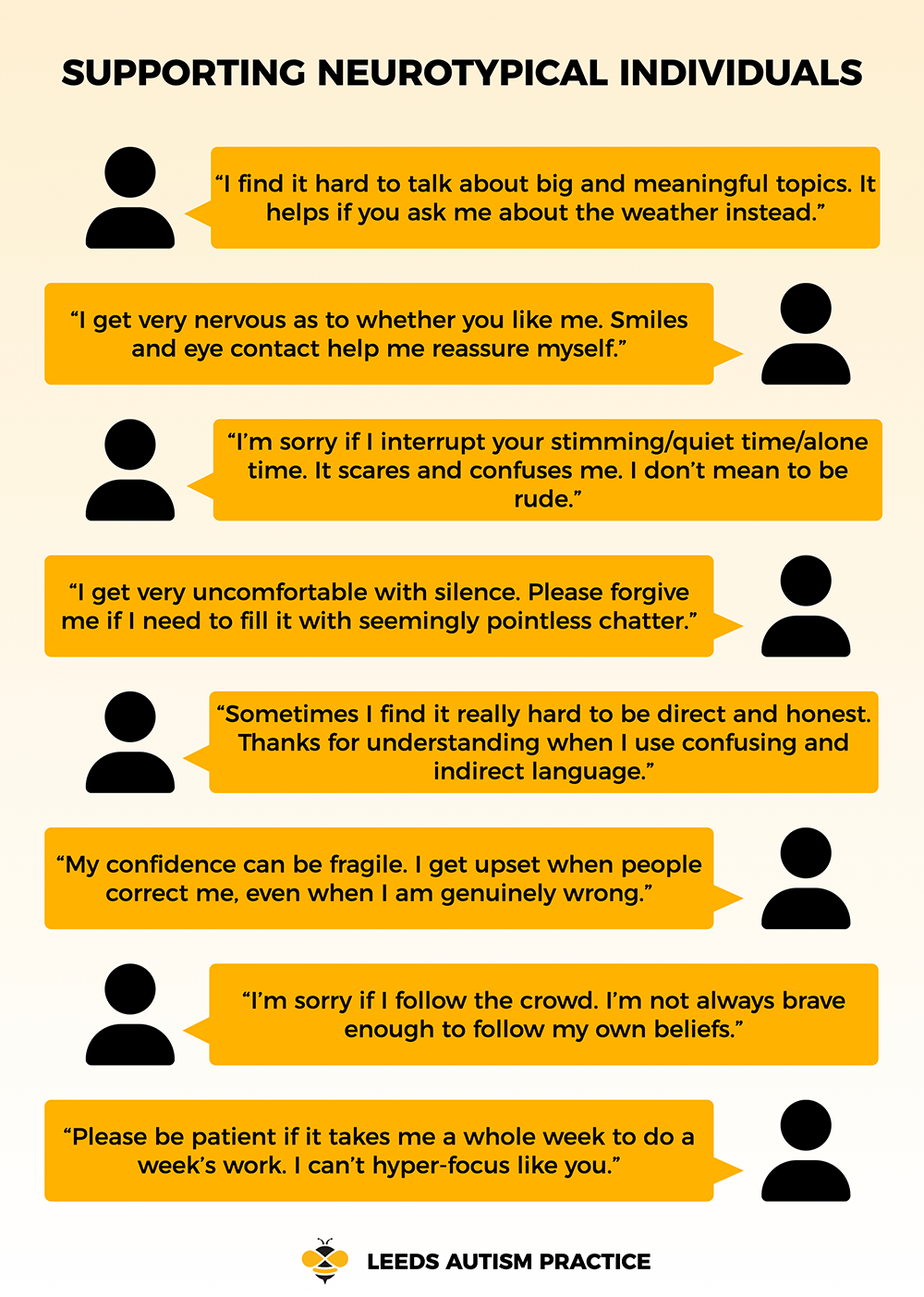The double empathy problem explained in a poster
Repositioning autistic communication as a difference rather than a deficit.
Published 10 November 2024. Written by Leeds Autism Practice Staff.

Outdated theories of autism suggest that autistic people have a lack of empathy and are unable to experience and express emotions correctly.
This changed when Damian Milton coined the term "double empathy problem" to describe the way autistic and non-autistic people sometimes have trouble understanding each other.
Many autistic people are very good at understanding other autistic people. And many neurotypical people are good at understanding other neurotypical people. But both groups can struggle to understand each other, in a cross-neurotype interaction.
This challenged traditional thinking. Early theories described autism as a deficit in social communication skills rather than a difference. However, the double empathy problem teaches us that both sides need to make adjustments to understand each other.
To highlight this, we created a poster that positions autistic behaviour as the norm, and the neurotypical way of communicating as a deficit. In reality, both ways of communicating are valid. But we find this is valuable as a thought experiment to explain the double empathy problem.

Click here to download the poster as a PDF.
Poster text reads:
“I find it hard to talk about big and meaningful topics. It helps if you ask me about the weather instead.”
“I get very nervous as to whether you like me. Smiles and eye contact help me reassure myself.”
“I’m sorry if I interrupt your stimming/quiet time/alone time. It scares and confuses me. I don’t mean to be rude.”
“I get very uncomfortable with silence. Please forgive me if I need to fill it with seemingly pointless chatter.”
“Sometimes I find it really hard to be direct and honest. Thanks for understanding when I use confusing and indirect language.”
“My confidence can be fragile. I get upset when people correct me, even when I am genuinely wrong.”
“I’m sorry if I follow the crowd. I’m not always brave enough to follow my own beliefs.”
“Please be patient if it takes me a whole week to do a week’s work. I can’t hyper-focus like you.”